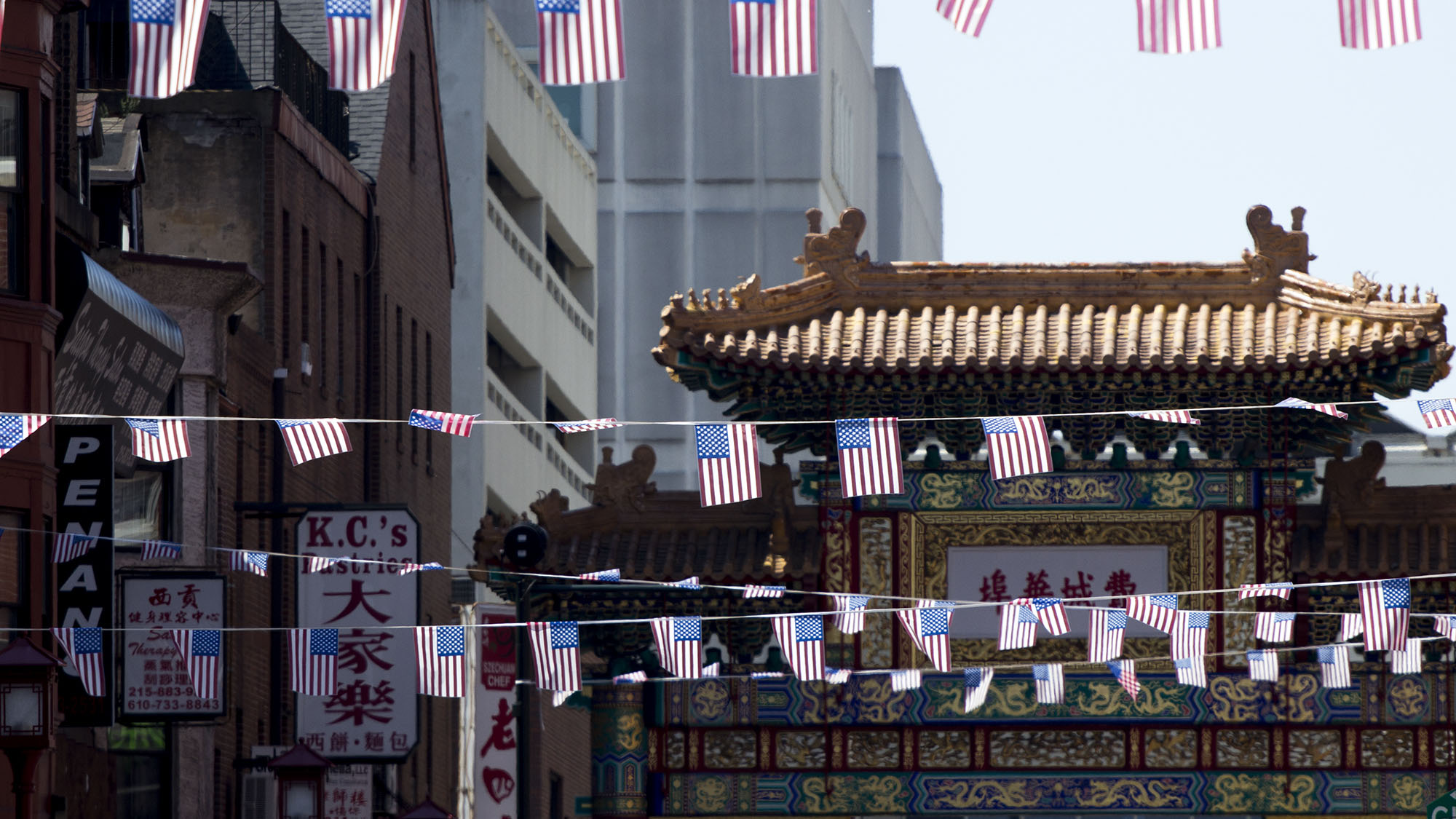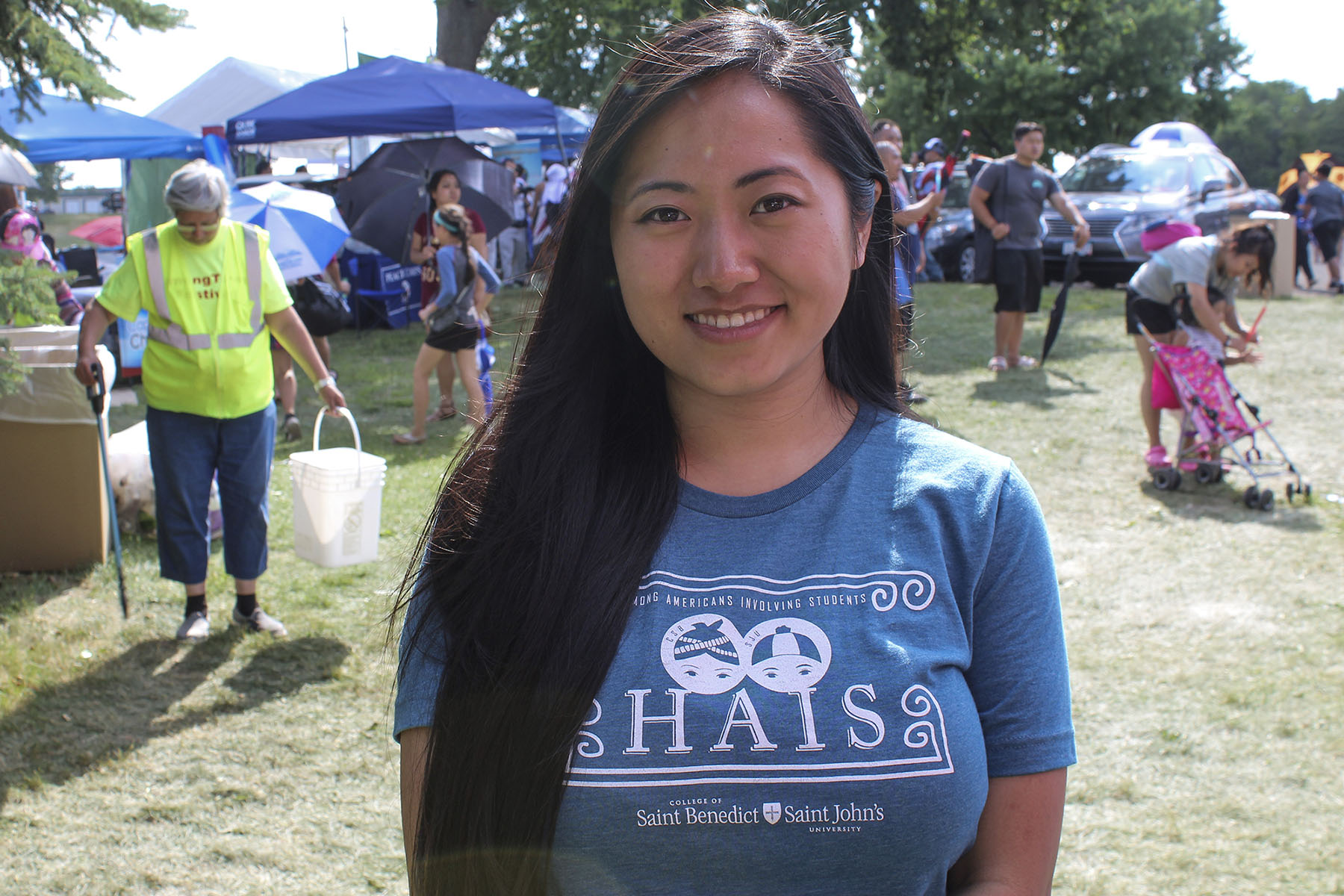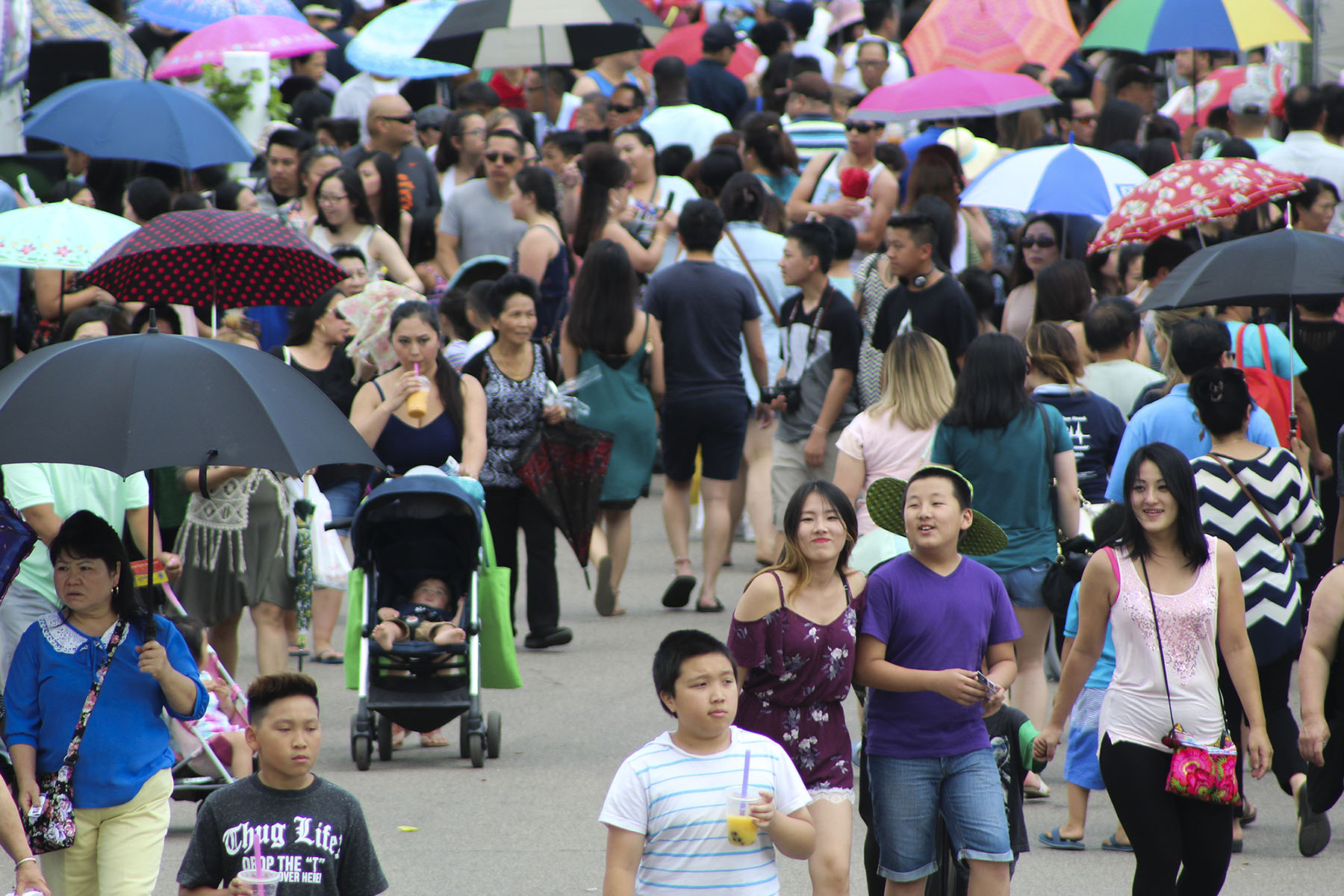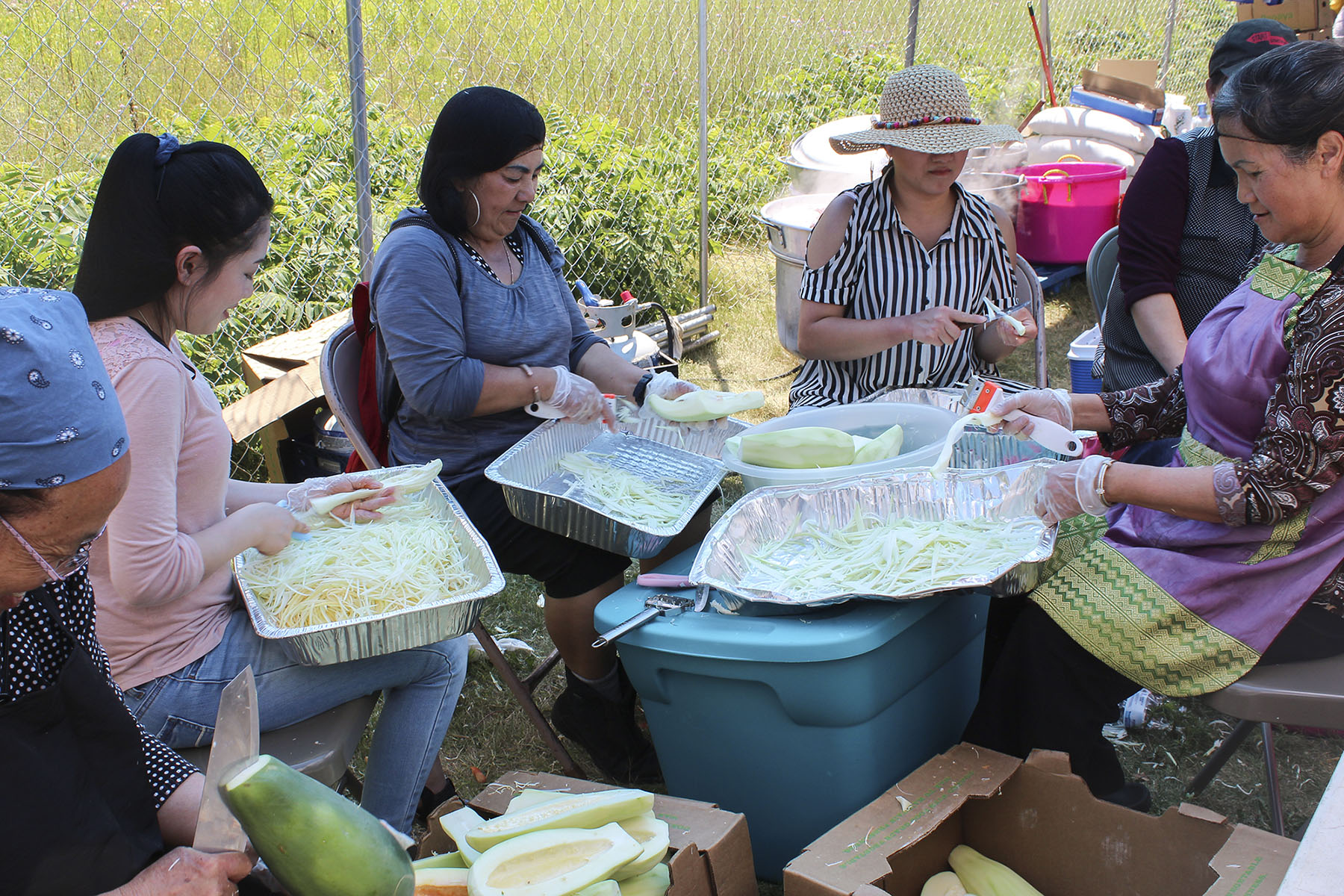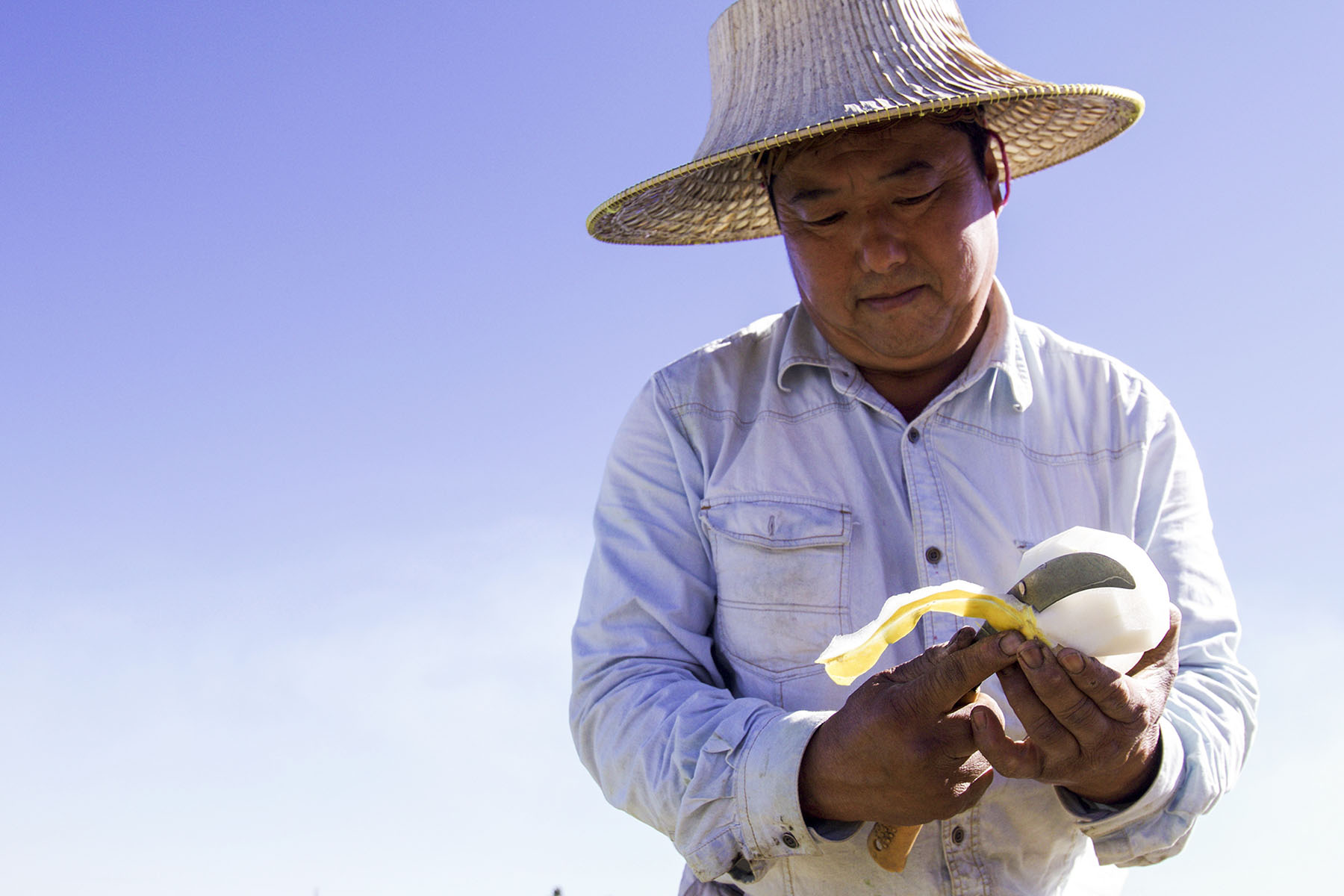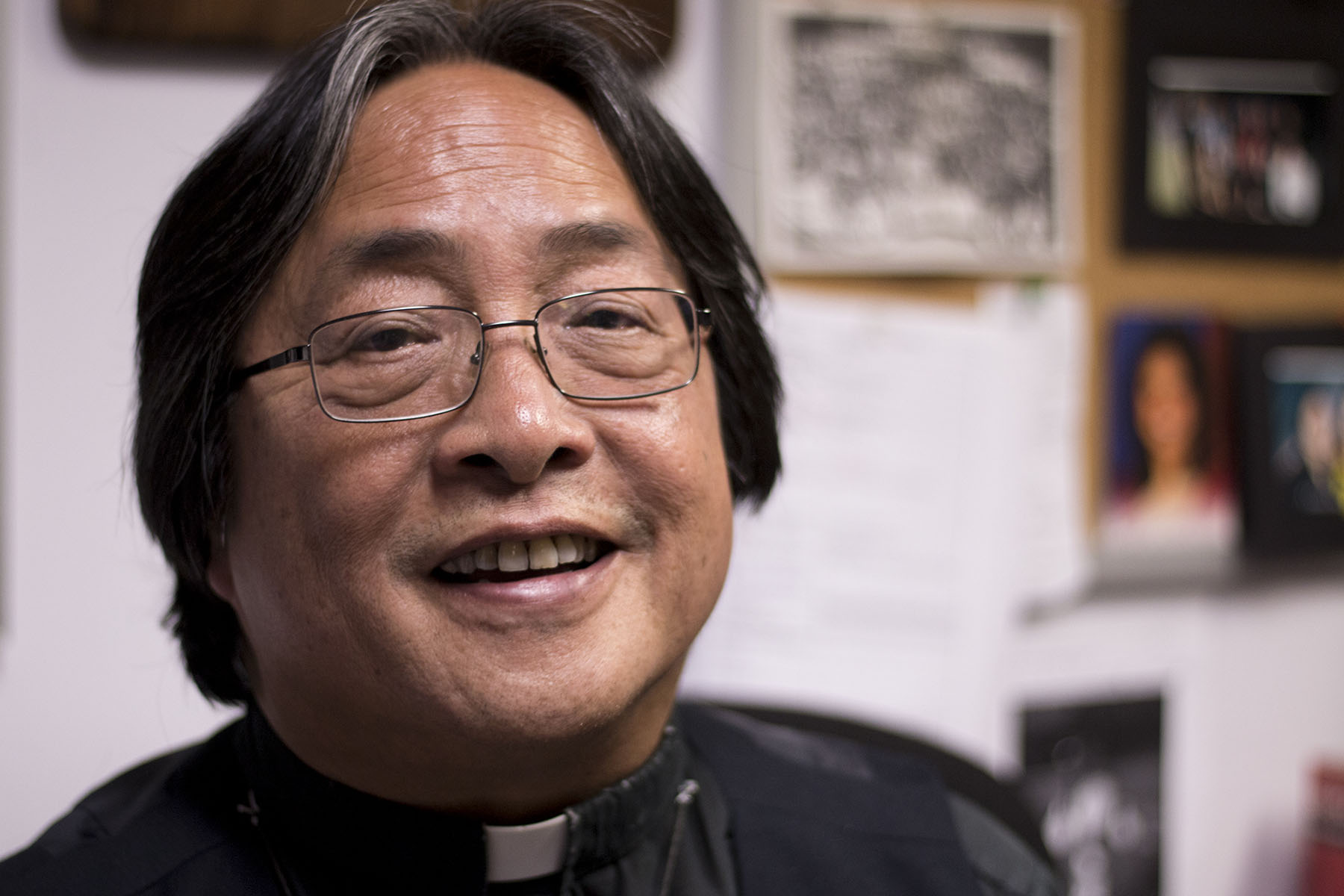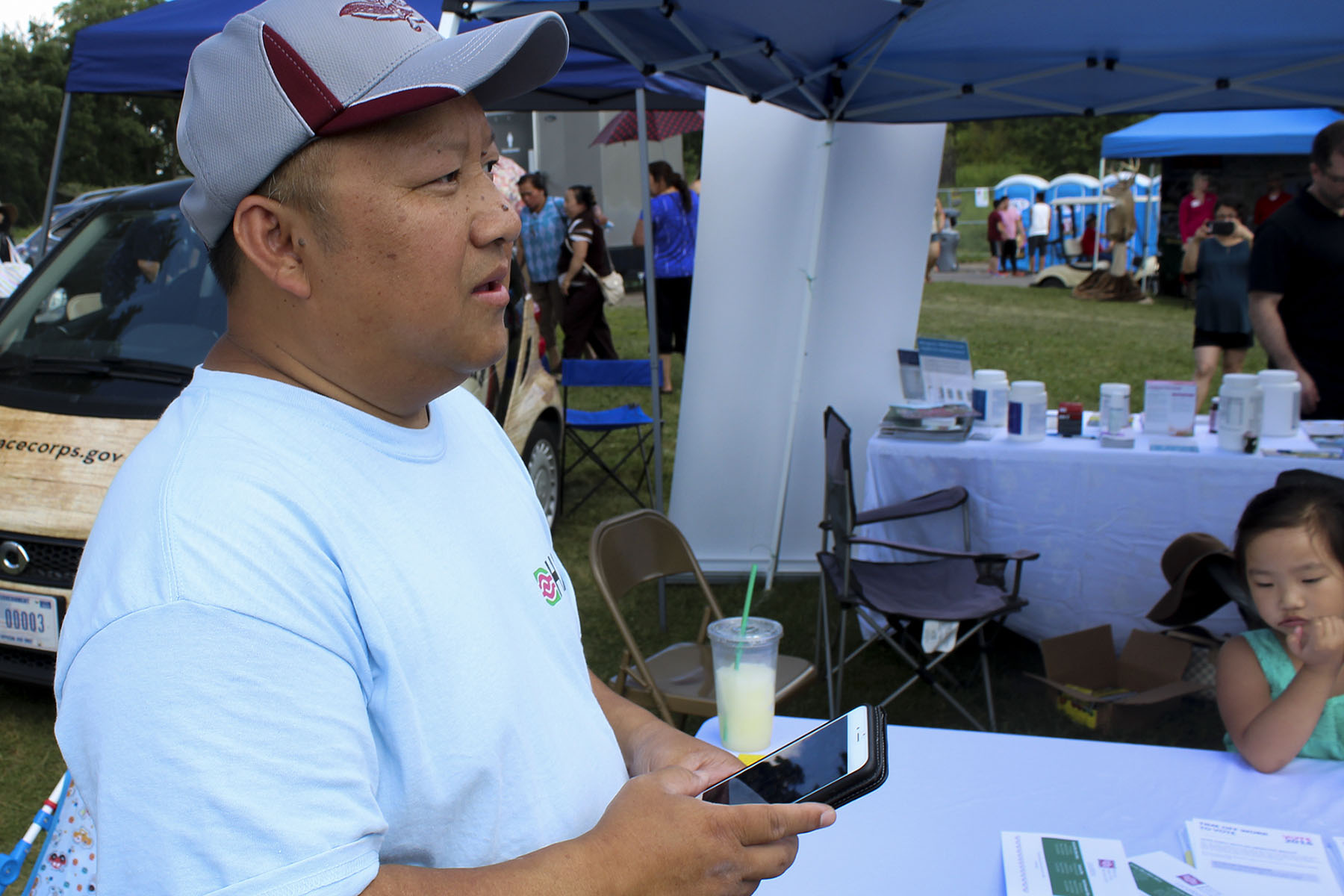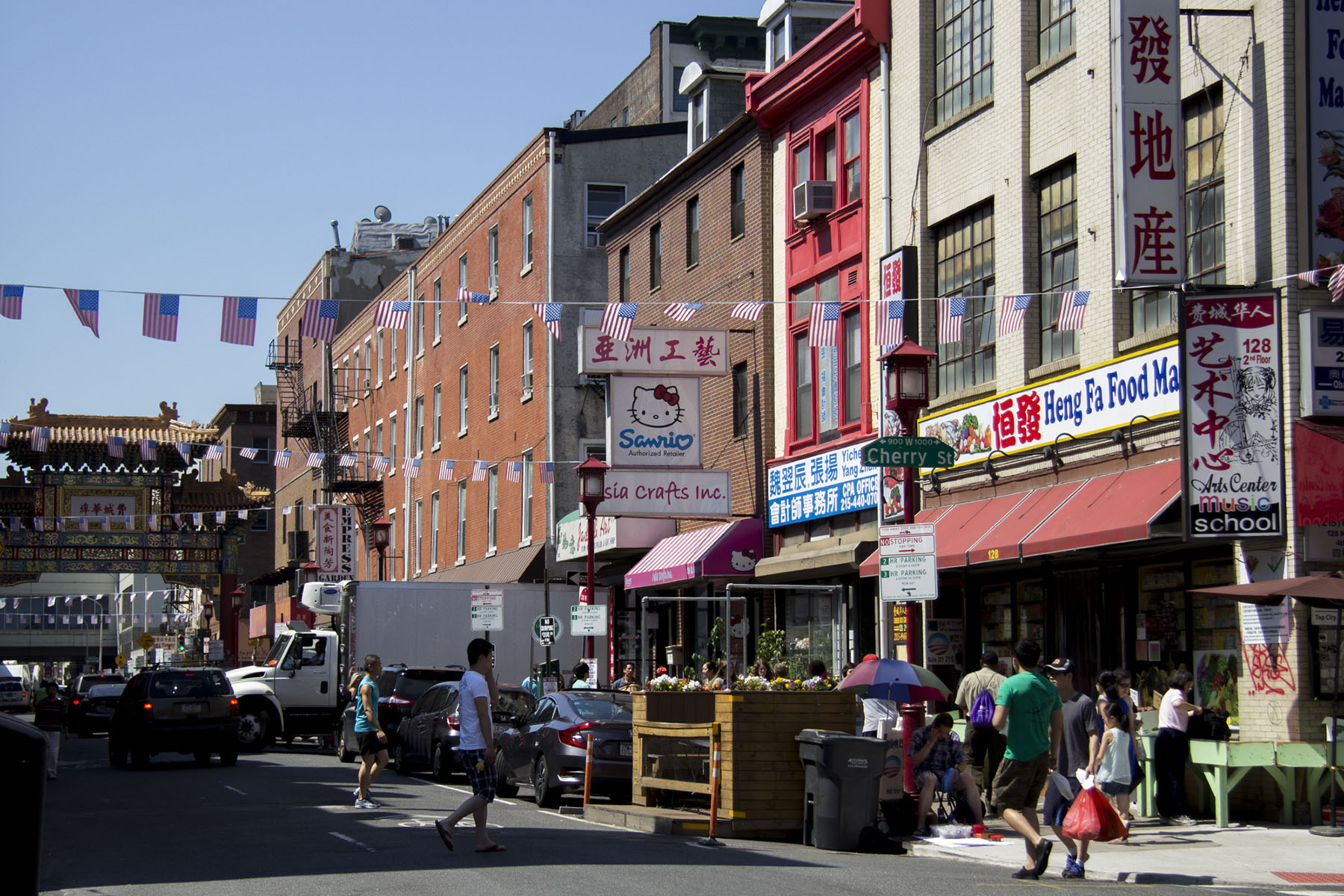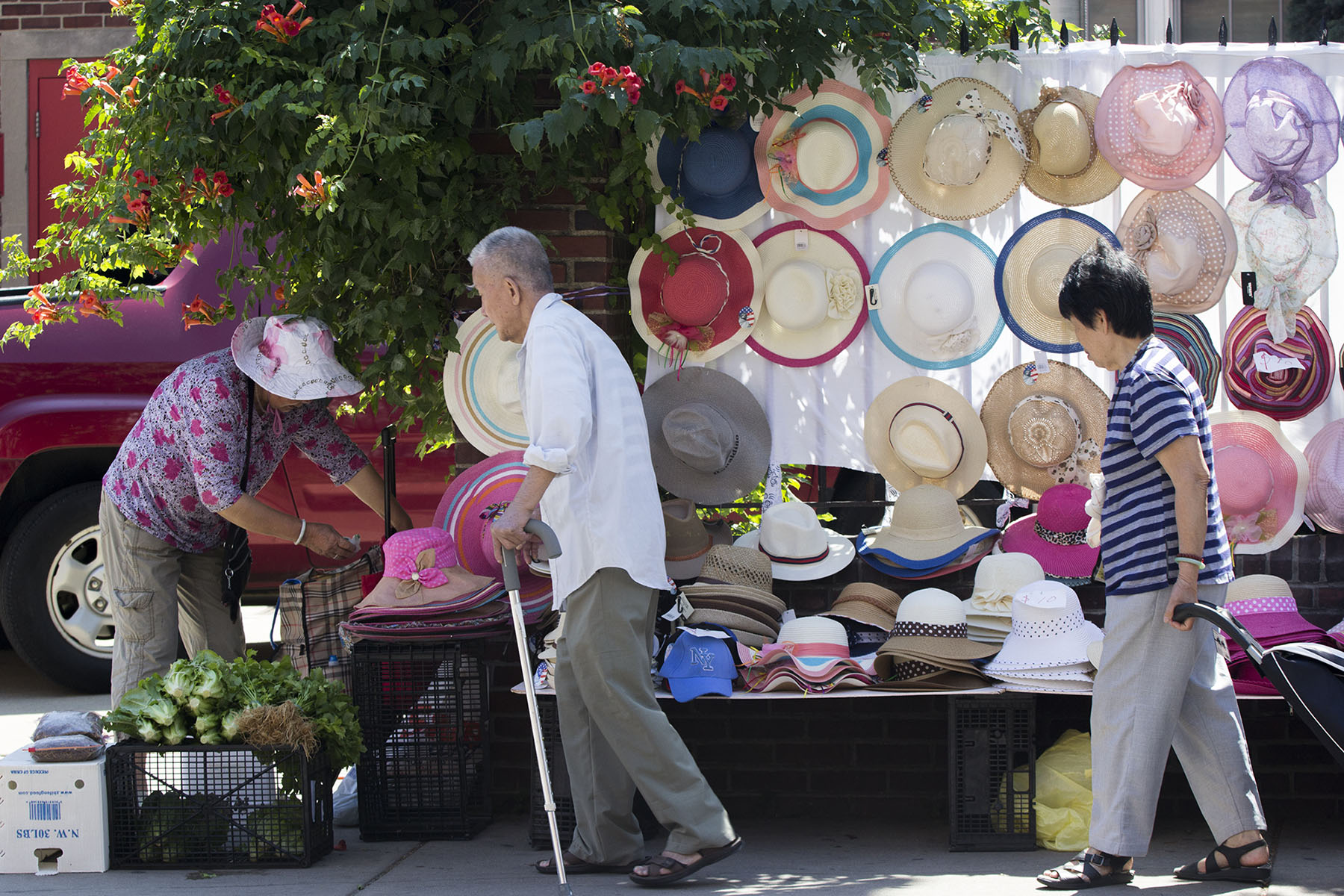The group is increasing its population, largely thanks to its immigrant population. According to the Pew Research Center, Asians make up the largest group of recent immigrants. Seventy-four percent of Asian-American adults were born outside the U.S.
And that’s one potential reason this demographic hasn’t seen big bumps in voter turnout. More than half of the respondents in the Pew survey said they see themselves as different from “typical Americans.”
Vattamala, the democracy program’s defense fund’s director, said his organization started exit polling to articulate the issues important to Asian-Americans.
“For the first time, people are starting to ask what issues are important and how they’re voting,” he said. “Things have gotten slightly better. Some media outlets are asking now.”
But data show it’s not necessarily easy to nail down how Asian-Americans “think” because so much depends on their individual background, their individual culture.
In 2012, the defense fund polled about 9,000 Asian-American voters in 14 states. Although 65 percent strongly supported immigration reform, responses varied within ethnicity groups. For example, 78 percent of Bangladeshi respondents supported reform while only 49 percent of Vietnamese respondents did.
David Ryu, a Los Angeles city councilman, said politicians haven't paid much attention to Asian-Americans voters during campaigns, but that’s starting to change. Ryu is the first Korean-American elected to the council.
“After my election, many people are looking towards Asian-Americans as being that swing vote,” he said. “And as we saw in the last presidential election, where Asian-Americans overwhelmingly supported Obama and the Democrats.”
Obama received about 70 percent of Asian-American votes in 2012.
There is hope for the future, Ryu said. Politicians are getting better at removing Asian-American voting barriers.
“It’s not a rocket science,” he said. “It’s just doing it … and simply going out and asking.”
U.S. Rep. Judy Chu, chairwoman of the congressional Asian Pacific American Caucus, said people are starting to pay attention to the Asian vote because it could affect certain swing areas.
“(My group is) pushing very hard to target the swing votes in the swing states for this presidential election,” said the California representative. “That’s Nevada, that’s Virginia and even includes Pennsylvania. So we need to make sure that we concentrate on those particular states and ensure that we register those (Asian-Americans), and we motivate them to go out to vote.”
Sarah Pitts contributed to this report.
This story has been updated to correct Jerry Vattamala’s title on second and third reference. He is the director of the Democracy Program at Asian American Legal Defense and Education Fund in New York.
